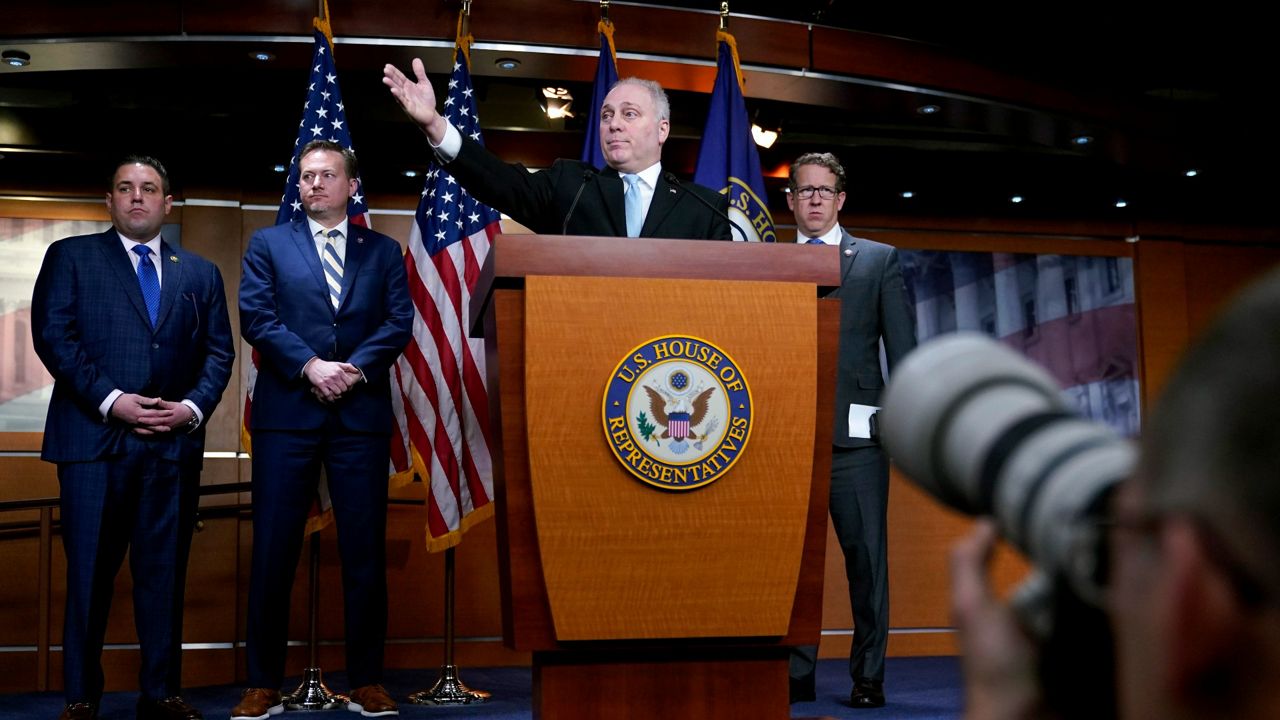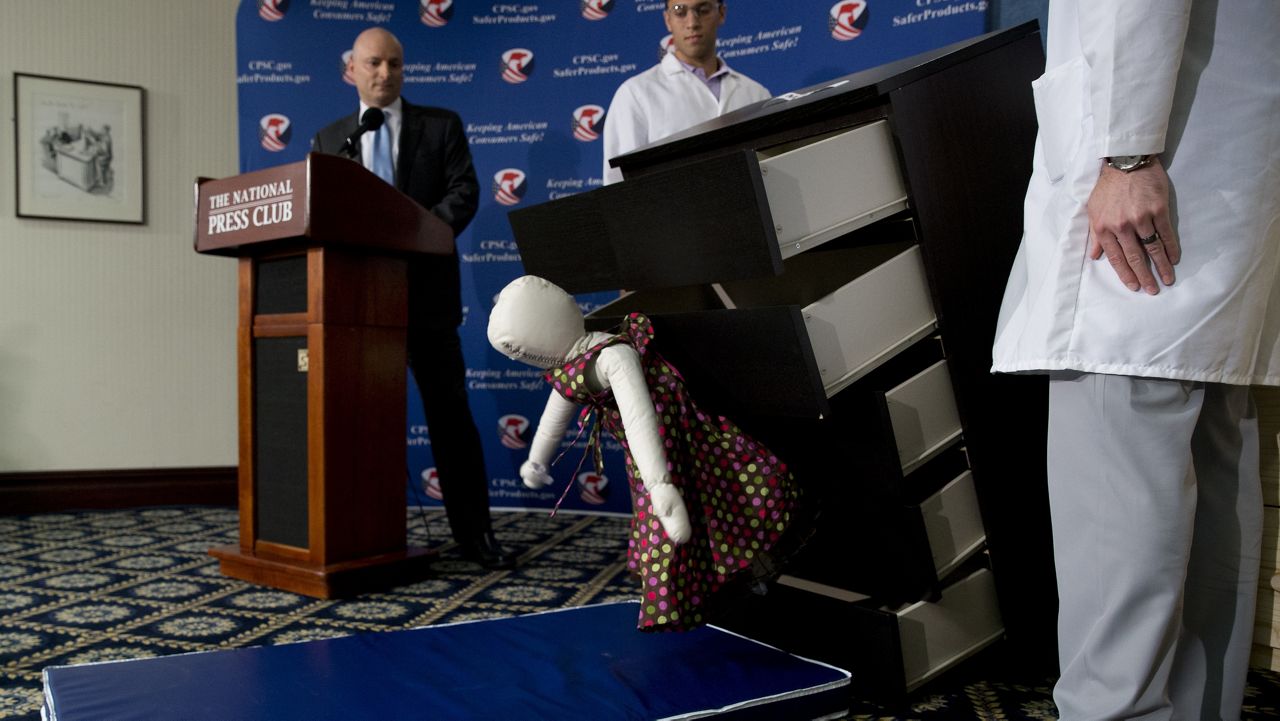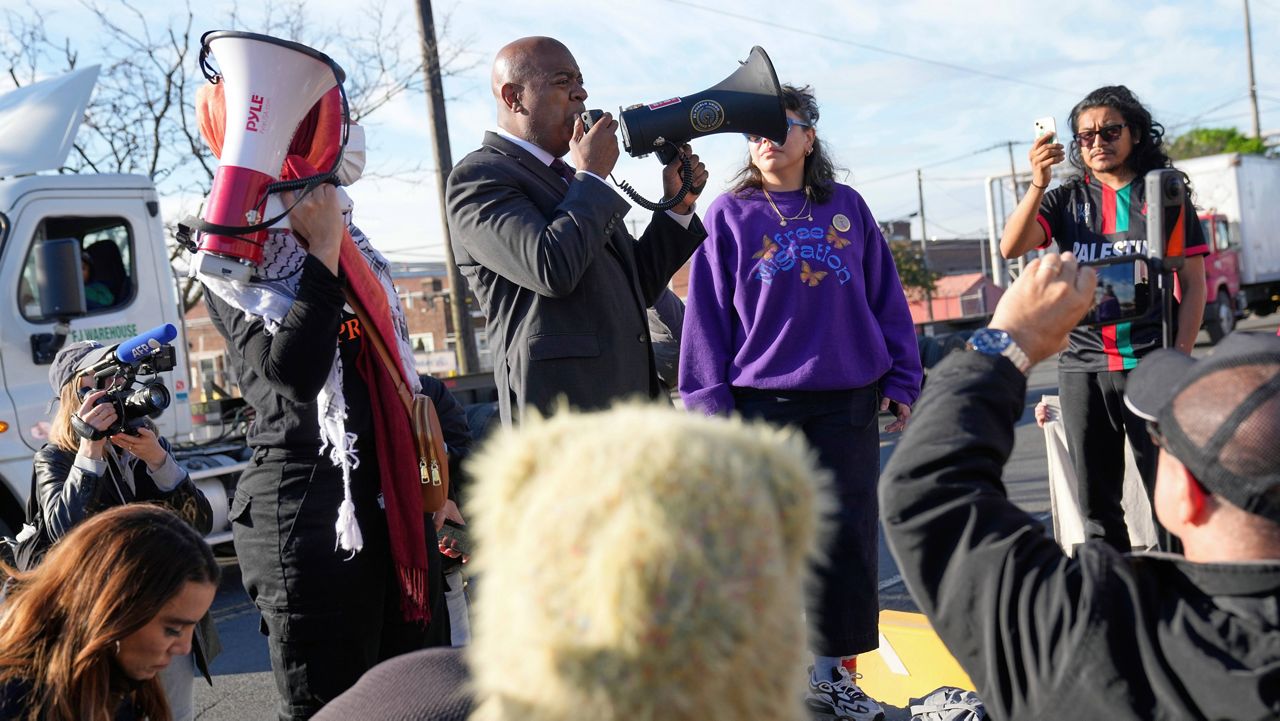After finally electing a speaker and passing rules governing the House, the Republican majority’s first order of business in the new Congress on Monday was passing a bill to rescind $72 billion in new IRS funding.
About $80 billion in funding for the agency was included in the $740 billion Inflation Reduction Act passed by Congress and signed into law by President Joe Biden in August.
Republicans have repeatedly claimed for months the increased funding will lead to an “army” of 87,000 new IRS agents auditing Americans, including low- and middle-income individuals and families. The claim, however, is baseless.
What You Need To Know
- Republicans' claim that $80 billion in new IRS funding will lead to an “army” of 87,000 new IRS agents auditing Americans is baseless
- The 87,000 figure originates from a May 2021 Treasury Department proposal, which estimates the funding would allow the IRS to hire 86,852 full-time employees by 2031, not all at once
- The IRS employs many workers who are not auditors, including customer service representatives, seasonal employees who file mail or transcribe data, lawyers and technicians
- The GOP’s claim has been debunked by multiple fact checkers, including The Washington Post, Politifact and FactCheck.org
“Government should work for you, not against you,” newly elected Speaker Kevin McCarthy, R-Calif., said in a statement after Monday’s legislation passed along party lines, 221-210. “As part of the House Republican Commitment to America, I promised we would vote to repeal the Democrats’ army of 87,000 IRS agents on our very first day in the majority.
“Promises made. Promises kept,” he added, echoing a phrase used by former President Donald Trump.
With Democrats controlling the Senate and White House, the bill is not expected to go any farther. But Republicans could attempt to use it as a bargaining chip in debates over the debt ceiling and government funding.
The 87,000 figure originates from a May 2021 Treasury Department proposal, which estimates the funding would allow the IRS to hire 86,852 full-time employees by 2031, not all at once. The IRS employs many workers who are not auditors, including customer service representatives, seasonal employees who file mail or transcribe data, lawyers and technicians. Currently, only about 13% of IRS employees are agents who audit tax filings and investigate tax crimes.
The Treasury Department says the additional funding is needed following years of budget cuts. The IRS’ workforce has fallen from 95,000 to around 80,000 over the past decade and, and the agency says its has fewer auditors today than at any time since World War II. The agency also has an aging workforce, and, according to the Government Accountability Office, it takes four to five years for a new hire to become a senior or expert revenue officer — the level typically lost in retirement.
Also according to the GAO, overall audit rates fell from 0.9% to 0.25% from 2010 to 2019. Audits on tax returns of more than $10 million plummeted from 21.5% to 3.9% during that same time, while audits on returns of $1 million to $5 million dropped from 8.2% to 1%.
Meanwhile, customer service also has suffered and the IRS’ technology has fallen behind, official say.
Treasury Secretary Janet Yellen said in a September speech that during last year’s tax season the IRS answered fewer than two of every 10 calls it received. She said the agency plans to hire 5,000 additional customer service representatives to answer more calls, cut wait times and assist more filers in person at tax-assistance centers.
Because technology upgrades have been put on the backburner amid budget shortfalls, outdated systems are still being used, decades of tax law is written in programming languages that are no longer taught and the IRS is still largely a paper-based agency in which employees sometimes transcribe paper returns by hand, the Treasury Department says.
Democrats also see the additional IRS funding as a way to increase revenue to fund some of their legislative priorities. But they insist the beefed-up enforcement is aimed at catching high-earning tax cheats, not low- and middle-income Americans.
That hasn’t stopped House Republicans from saying otherwise.
“Last night's legislation is about taxpayers,” Rep. Adrian Smith, R-Neb., said during a news conference Tuesday. “It's about empowering taxpayers who are trying to just do the right thing and paying their taxes without having to face more and more is IRS resources.”
In making their case that the audits will impact more than the wealthy, Republicans have pointed to a September 2021 analysis by the Congressional Budget Office. It projected that audit rates would increase for all tax payers but that higher-income taxpayers would face the largest increase. The overall audit rates would likely return to the levels they were at about 10 years ago, the agency said.
Yellen has said she’s ordered the IRS not to use the new funding to raise audit rates on households earning less than $400,000 a year.
Democrats, meanwhile, argue that the Republicans’ efforts to roll back the IRS funding is about protecting the rich and corporations.
“It is shameful, but not surprising, that @HouseGOP’s first order of business in this Congress is to protect corporate America and ultra-wealthy individuals who are illegally avoiding taxes,” Rep. Nancy Pelosi, D-Calif., tweeted Monday night.
“This new MAGA Majority in the House will always choose its rich donors and political interests over the well-being of working families,” the former House speaker added.
Added Rep. Bonnie Watson Coleman, D-N.J.: “Republicans love to claim that Democrats added ‘87,000 IRS agents.’ This is a fearmongering tactic and a lie. Now, @HouseGOP is attempting to govern based on that lie.”
The GOP’s claim of 87,000 agents has been debunked by multiple fact checkers. The Washington Post gave it four Pinocchios. Politifact rated it as “mostly false.” FactCheck.org included it in its “Whoppers of 2022” list,” which it described as “the year's worst political and viral deceptions.”
Republicans on the House Ways and Means Committee tried to counter that blowback with its own fact check Monday, but the news release included some misleading statement, including using the terms “agents” and “full-time equivalent employees” interchangeably.
It also claimed only $3.2 billion of the $80 billion for the IRS would be dedicated to customer service. While the bill does set aside that amount for “taxpayer services” — including pre-filing assistance, education and filing services — it also allocates nearly $5 billion more to modernizing business systems and creating a direct “e-file” system that would improve customer service.
Nearly $46 billion of the $80 billion is allocated for enforcement.
The CBO released an analysis Monday saying if Republicans succeed in rolling back the funding, it would add $114 billion to the federal deficit over the next 10 years. The agency had previously projected the additional funding will create $200 billion more in revenue over the same span.
Ryan Chatelain - Digital Media Producer
Ryan Chatelain is a national news digital content producer for Spectrum News and is based in New York City. He has previously covered both news and sports for WFAN Sports Radio, CBS New York, Newsday, amNewYork and The Courier in his home state of Louisiana.








